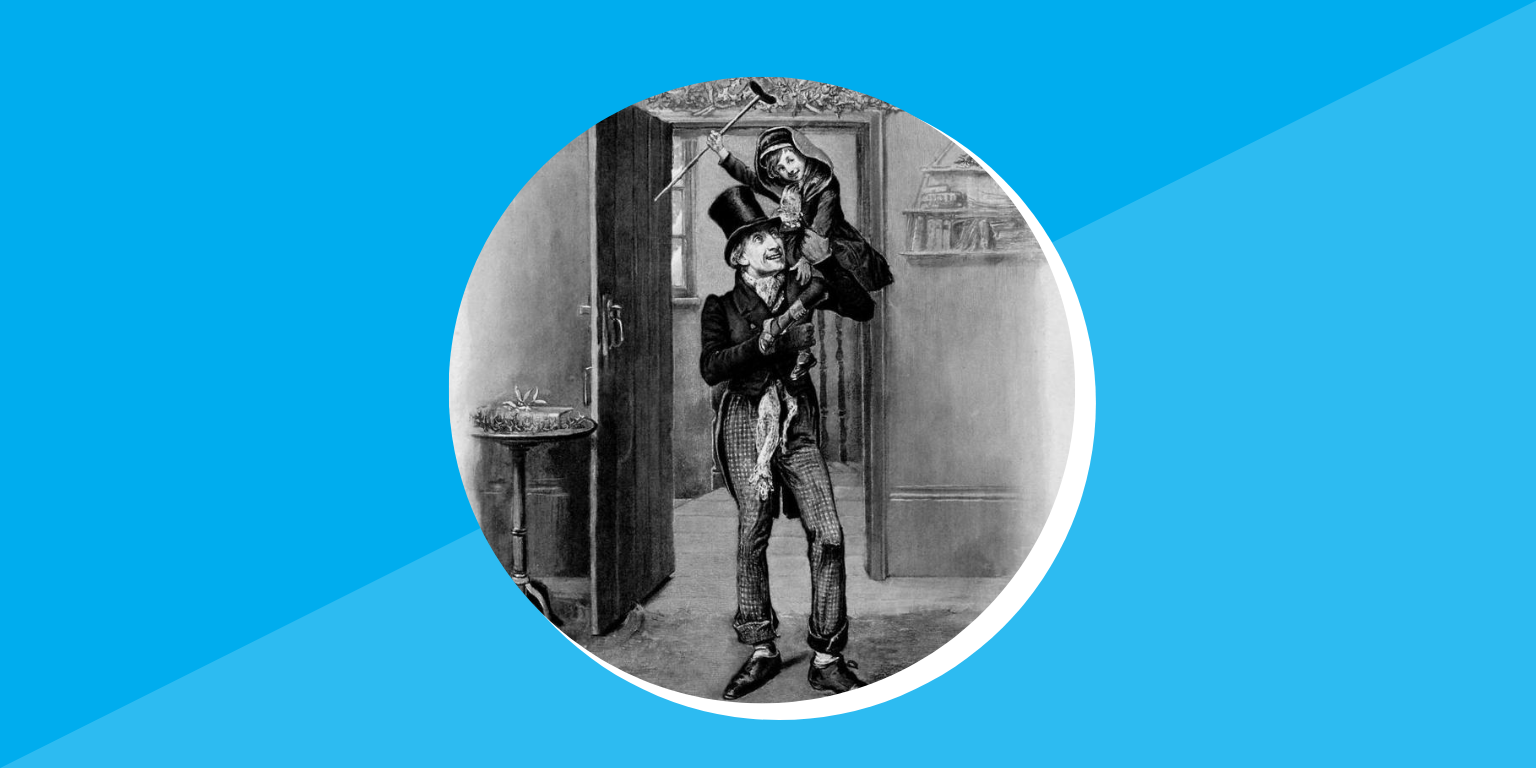Macy Pingree is a policy intern with Alliance for a Better Utah.
We have all heard the phrase, money doesn’t buy happiness. This saying can be traced back to the eighteen hundreds, so it is safe to say that it has been around for a while. While it has gone through subtle changes over the years, the overarching meaning has stayed the same: money can only buy you material possessions, but it can not buy friends, love, joy, or purpose. It is a criticism toward greedy individuals who amass great wealth often at the expense of others.
However, in an ironic twist, the phrase has been commandeered by the greedy. They took these words of criticism, blatantly disregarded them, and are now moralizing to the poor. This creates feelings of guilt, hopelessness, and shame in some of our most vulnerable communities. Instead of its original intent—a lesson for the miserly Scrooges of the world—it has been twisted and projected onto the Tiny Tims.
When Tiny Tim says: “It’s not possible to live on the minimum wage. I need affordable housing and childcare. I can’t get a full-time job because the company doesn’t want to give me benefits. Now I don’t have enough hours or any healthcare.”
Scrooge replies, “You are asking too much. There is nothing we can do. But don’t worry, money doesn’t buy happiness, you’ll be fine.”
A convincing but incorrect sentiment. When an individual is unable to obtain food, water, shelter, or clothing all they are thinking about is trying to survive; they don’t have time for anything else. It is only after all of our needs are met that money ceases to increase happiness. In other words, money does buy happiness when it’s buying the basic necessities of life.
According to the data from the 2018 census, the median annual income per household in Utah is just over $68,000. This is a good chunk of money, but when we compare it to the cost of living for a four-person household ($81,578), it fails to measure up.
Family Budget Calculator
The disparity increases as the number of children in the family increases. A six-person household would need a minimum income of $106,404 to cover their expenses and break even. If the family wanted to add savings to their budget (e.g.: retirement or college), then they would need to bring in even more money.
Even so, the reported median Utah salary in the 2018 census is nearly $70K. This is well above the federal poverty level. The federal poverty line is what the government uses to determine who qualifies for different types of aid. However, the word poverty is defined as someone who does not have enough means to reach their needs. Because the median salary is lower than the cost of living, many Utahns can’t afford everything that they need.
For example, the difference between the annual expenses of a six-person household and the median Utah salary is almost $40,000. This means that the family will have to cut their annual costs by $40,000. Where will that money come from? First, all the kids’ extracurriculars will have to go. No more playing any instruments or sports. Perhaps they will have to cut back on fresh produce, getting the cheaper, more unhealthy alternatives. Maybe they will opt for a two-bedroom apartment (instead of a house) where all four kids have to share one room. The list goes on.
If a family pulling in $70K each year can’t afford the cost of living, what is it like for those living on minimum wage? Or individuals living on disability pay? Supplemental Security Income (SSI) in Utah comes to only $771 per month. That won’t even cover the cost to rent a studio apartment, let alone food and other necessities.
As a society, we need to critically examine our priorities. Is it wealth? Or is it our neighbor’s health? Healthy finances are the foundation upon which we build our lives. As long as poverty is seen as only a personal failure instead of a part of a systemic failure, we will continue to limit the resources provided to others and halt change towards a more secure future for all Utahns. We need to reexamine our financial policies. This encompasses everything from increasing the minimum wage to providing affordable housing and childcare.
Ghosts of our past, present, and future have already come. We have seen how our choices have consequences, greed destroys society, and unwillingness to change will lead to a societal collapse.
We need to take firm steps towards a future in which economic equality is not a pipe dream, but a working reality. True happiness doesn’t come from excess wealth, but it can be harder to find when one is financially and socially unstable.
Scrooge had a change of heart, and we must, too, if we want to sincerely shout, as Tiny Tim often did, “God bless us every one!”
Macy Pingree is a policy intern with Alliance for a Better Utah.

